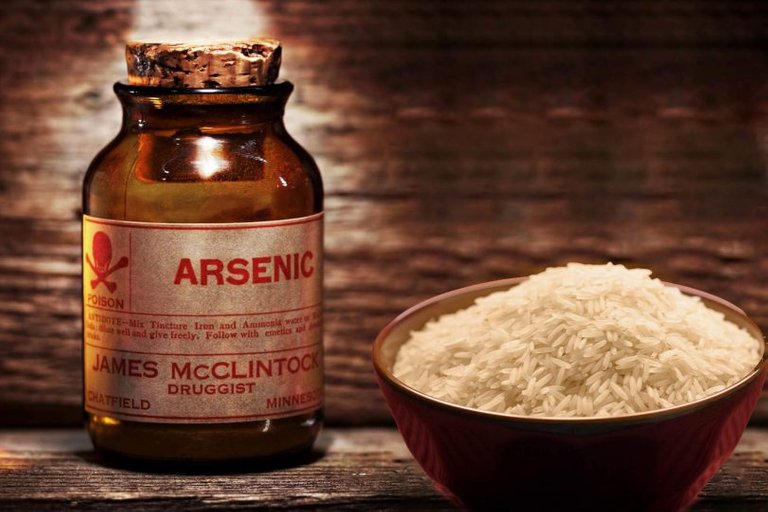International Agency for Research on Cancer has classified arsenic as a carcinogen.
The coffee. An analysis conducted in 2011 by the French Agency for Health (ANSES) showed that coffee contains inorganic arsenic in small doses, informs medisite.fr. Long-term consumption of foods that contain inorganic arsenic is associated with problems such as skin lesions, cardiovascular disease and some cancers.
A pooled Fish food made in France in 2004 showed that fish, mollusks and crustaceans are vectors contribute more to population exposure to arsenic. Analysis of food samples 998, 469 (i.e. 47%) had a higher level the detection limit of arsenic. The arsenic was present at an average level of 2 mg / kg in fish and shellfish. High arsenic content of products is as organic.
Rice. Several studies have shown the presence of a too high level of arsenic in rice and rice based products. Long-term exposure to arsenic, especially those coming from food, is responsible for cancer, information confirmed by the World Health Organization.
Cereal bars. A study conducted in 2012 by Dartmouth Medical School pointed to dangerous levels of arsenic present in 22 of 29 cereal bars tested. All ingredient with rice-based. These products are mainly inorganic arsenic, the most dangerous to health, which is in the groundwater. Rice needs more water to grow, which explains the presence of this food and derivatives. Another 2009 study cautions that cereal products contribute most to dietary exposure to arsenic.
Beer . Beer produced in Germany can contain more arsenic than water. In 2013, the German explained that this is attributed to a compound (diatomaceous earth) used in the filtering process. However, the level of arsenic in German beer is low. It is good to know that diatomaceous earth is used only in Germany.
Mineral water is one of the first vectors contaminated with arsenic. Known for its toxicity (old was used as a poison), arsenic is fatal in doses between 70 and 180 mg. The amount of arsenic in water should not exceed 10 g / liter.
Milk powder for babies. An American study published in 2012 in the journal Environmental Health Perspectives outline the presence of arsenic in infant milk formulas. In total, 2 of the 17 types of such milk containing arsenic. One of them even have a level six times higher than the authorized limit. It is highly likely that the contaminants to be made because of adding brown rice syrup, a natural sweetener.
Stay healthy and stay fit! @pil05 Salutes you !
